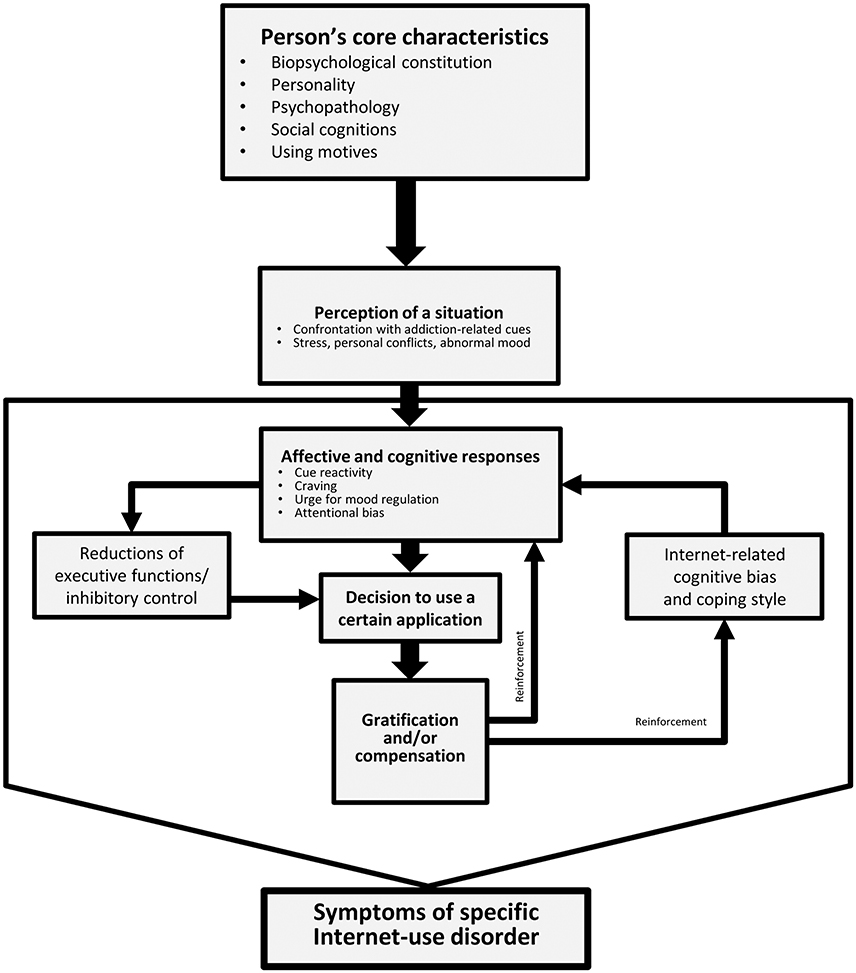Disorders Such As Gambling Disorder And Internet

Addiction practitioners are recognizing that certain nonsubstance behaviors—such as gambling, Internet use, video-game playing, sex, eating, and shopping—bear resemblance to substance use disorders. Gambling disorder is the only condition that was included in the “Substance-Related and Addictive Disorders” in DSM-5. In addition, because of the interaction between gambling disorder (GD) and other disorders, some patients being treated for alcohol, tobacco and drug use disorders might have an undiagnosed GD. This presentation reviews the epidemiology and phenomenology of gambling disorder. It covers recent advances in our understating of GD and describes treatment considerations.
Antoine Douaihy, MD


Internet gaming disorder or gambling disorder are what’s called process addictions. Explain addictions to activities such as video games, online gambling, and day trading, as well as how to. Than harm attributed to drug dependence disorder. Serious problem gambling, referred to as pathological gambling, was first included in the DSM-III in 1980. In the DSM-V it was renamed gambling disorder and placed in the new ‘Addictions and Related Disorders’ category. It is the only non-substance addiction included.

Antoine Douaihy, MD

Professor of Psychiatry & Medicine, University of Pittsburgh School of Medicine
In some respects, addictive use of the Internet resembles other so-called 'process' addictions, in which a person is addicted to an activity or behavior (including gambling, shopping, or certain sexual behaviors) rather than a substance (mood-altering drugs, tobacco, food, etc.). However, it recognized internet gaming disorder in the section recommending conditions for further research, along with caffeine use disorder and other conditions. The DSM-5 includes substance-related addictive disorders, such as alcohol, tobacco, stimulants, marijuana and opioids.
Disorders Such As Gambling Disorder And Internet Gaming Disorder Are Considered
Dr. Douaihy is a Professor of Psychiatry and Medicine, Senior Academic Director of Addiction Medicine Services (AMS) and Addiction Psychiatry Fellowship at Western Psychiatric Hospital of the University of Pittsburgh Medical Center (UPMC), and Co-Director of the Tobacco Treatment Service of UPMC. His areas of clinical and research expertise and interest are substance use disorders (SUDs) and SUDs co-occurring with psychiatric disorders in adults and adolescents, psychiatric disorders in individuals with HIV/HCV, smoking cessation and psychosocial approaches, particularly motivational interviewing, and medication trials for co-occurring disorders, opioid and stimulant use disorders. He has a demonstrated record of expertise and experience in SUDs and a well established record of leadership and expertise in conducting multi-site clinical trials. He has served as Principal Investigator (PI), Co-I, or a consultant on studies funded by NIAAA, NIDA, NIMH, SAMHSA, and pharmaceutical industries. He served as a member of the Opioid Addiction Task Force (established in the U.S. District Attorney in Allegheny County) and the opioid addiction and recovery task force at the University of Pittsburgh. He is currently the vice chair of Pittsburgh HIV/AIDS Commission and a member of the physician work group on medical marijuana at the PA Department of Health.
